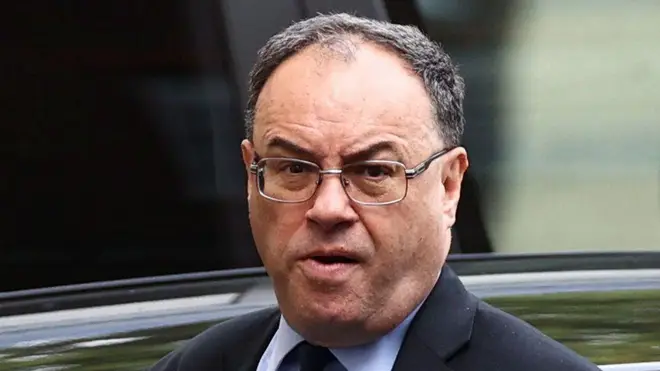
Ian Payne 4am - 7am
28 September 2021, 06:26 | Updated: 28 September 2021, 06:34

Bank of England boss Andrew Bailey has joked "when is the plague of locusts due" as he warned of "hard yards" ahead for the economy after the pandemic.
Mr Bailey made the passing comment during a speech to the Society of Professional Economists on Monday evening, also saying that the rate of recovery from the pandemic had slowed over recent months.
He said: "Pulling this together, the recovery has slowed and the economy has been buffeted by additional shocks.
"The switch of demand from goods to services, as Covid has faded in terms of its economic impact, has not taken place to date on the scale expected.
"Meanwhile, supply bottlenecks and labour shortages have weighed on output, and are continuing."
Mr Bailey compared the growing number of problems to the plagues of Egypt, adding: "I must say that when I heard that we were suffering a shortage of wind to generate power, I was tempted to ask, 'and when are the locusts due to arrive?'"
Read more: Military on standby to tackle fuel crisis, Govt confirms
Read more: Panic at the pumps: Calls for 999 heroes to queue-jump as fuel crisis cripples country

Truck driver speaks to LBC about lack of EU lorry drivers coming to UK
The banker also explained how "uncertainty" around the labour market was providing added pressure on the economy.
"The pressures are very much still with us, and there is still, we believe, pass-through to retail prices to come, and manufacturers' output prices are still rising rapidly," he said.
"Added to that is the uncertainty around how the labour market puzzle resolves itself, and how that will affect employment and earnings.
"Meanwhile, just to remind, the recovery is weakening. A lot therefore turns on how effectively supply capacity is rebuilt and over what time, and how the labour market evolves.
"These are truly hard yards."
It comes as a shortage of lorry drivers across the UK has led to a number of supply chain issues across different industries, with emergency measures being put in place by the government to help put an end to the crisis.
It has most recently hit the fuel industry, which has seen motorists head to petrol stations up and down the country to panic buy as much as they can in response.
The Department for Business, Energy and Industrial Strategy (BEIS) said on Monday that some military tanker drivers were on standby to ease pressures caused by the spikes in demand.
Business Secretary Kwasi Kwarteng also chose to suspend competition laws for the fuel industry, allowing suppliers to prioritise filling stations running low.